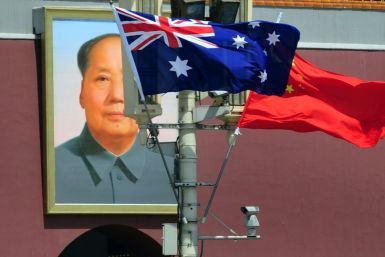Australian market closes flat on 2011first day trade
The Australian share market closed flat on its first day of trade for 2011 as the materials sector continued to lead the index early in the new year.
The benchmark S&P/ASX200 index fell 2.7 points, or 0.06 per cent, to 4,742.5 points, while the broader All Ordinaries index rose 2.6 points, or 0.05 per cent, to 4,849.5 points.
On the ASX 24, the March share price index futures contract was three points higher at 4733 on volume of 28,492 contracts.
The materials sector gained 0.62 per cent on the day, while energy stocks rose 0.5 per cent and financials lost 0.48 per cent.
The major miners held on to their gains, with Rio Tinto adding 33 cents, or 0.39 per cent, to $85.80 and BHP Billiton up 20 cents, or 0.44 per cent, at $45.45.
Metals prices settled firmer and oil prices touched two year highs above $US91.50 a barrel overnight.
Woodside Petroleum also rallied, up 27 cents, or 0.63 per cent, to $42.83.
Overnight, US listed stocks kicked off the year with strong gains as confidence in the US economic recovery was bolstered by new manufacturing data, while European markets also made sharp gains.
Suncorp Group lost 26 cents, or three per cent, to $8.35 and QBE fell 38 cents, or 2.09 per cent, to $17.77.
IAG slipped six cents, or 1.55 per cent, to $3.82.
Among the major retail banks NAB was the shining light, rising 14 cents, or 0.59 per cent, to $23.84.
CBA fell 0.59 per cent, ANZ was down 0.39 per cent and Westpac lost 0.41 per cent.
Coal stocks largely held up despite expected production losses due to flooding in Queensland, as coal prices rose due to tightness of supply.
Whitehaven Coal added 16 cents, or 2.38 per cent, to $6.88 and New Hope Corporation gained seven cents, or 1.44 per cent, to $4.92.
Gold miner Newcrest Mining was seven cents higher at $40.51.
The spot price of gold in Sydney was $1,416.3 per ounce, up $7.50 from Friday's local close of $1,408.80.
Lynas Corporation was the best performer in the ASX top 200, gaining 24 cents, or 11.65 per cent, to $2.30 on the back of news China will cut exports of rare earth materials.
The most traded stock by volume was Avanco Resources, with 74.7 million securities changing hands for $12.18 million.
Preliminary market turnover was 2.64 billion shares changing hands for $4.09 billion, with 642 up, 516 down and 366 unchanged.
The Australian dollar was weaker late Tuesday as huge flooding in the resources rich state of Queensland prompted expectations of a big hit to the country's economic output, given the disruption to coal exports and crop production.
While the full scale of the damage is not yet clear, analysts believe the flood damage will toss out the need for any near-term rate hike by the Reserve Bank of Australia, which in turn should pressure the Australian dollar.
But the longer term picture is confused by expected higher commodity prices on the back of reduced wheat and minerals exports, which will drive inflation.
Dealers have currently priced in 42 basis points of tightening by year end.
The Australian dollar traded at $1.0107, down from $1.0169 late Friday.
Sydney was closed for New Years holiday Monday.
Against the Japanese yen, the Australian dollar traded at 82.895, down a touch from 82.90.
More from IBT Markets:
Subscribe to get this delivered to your inbox daily
Follow us on Twitter.
Follow us on Facebook.






